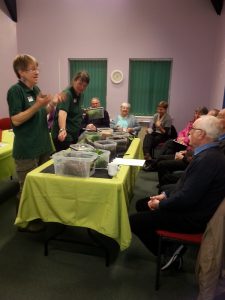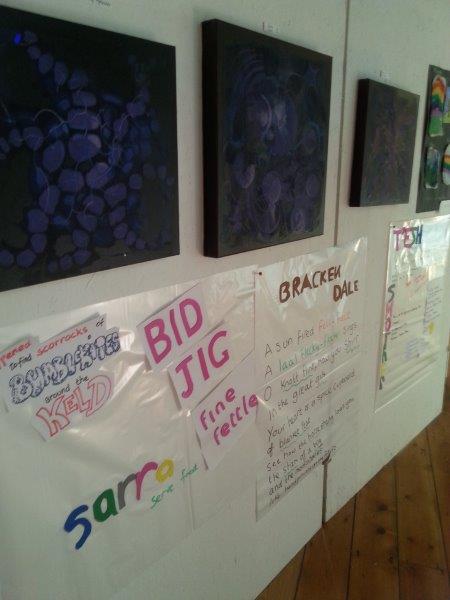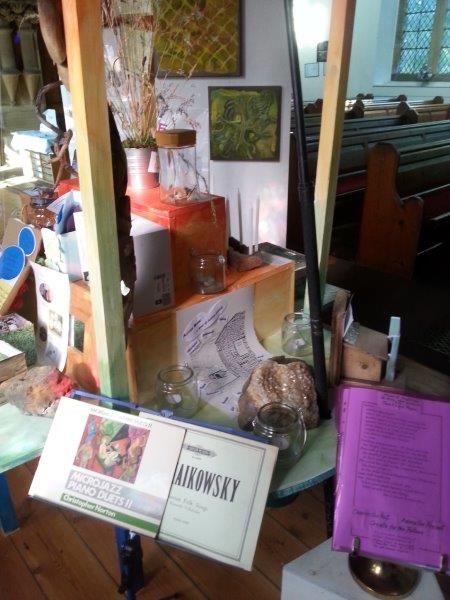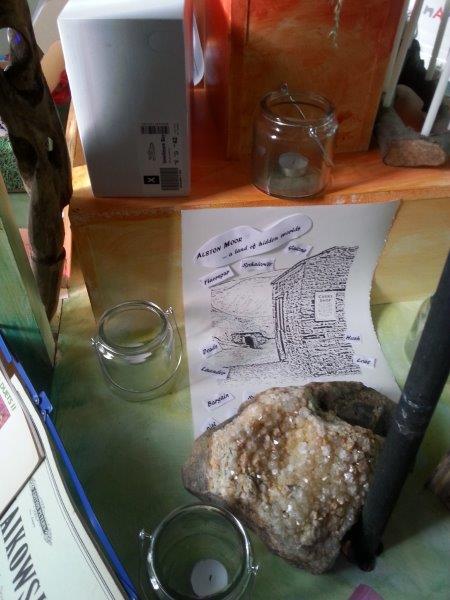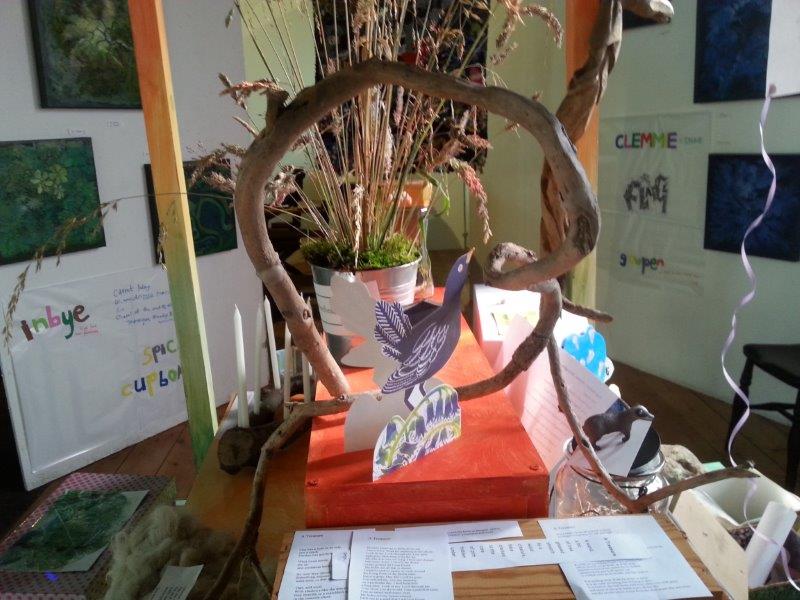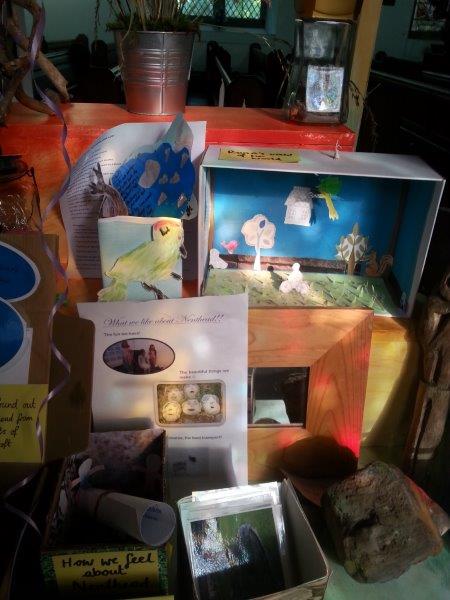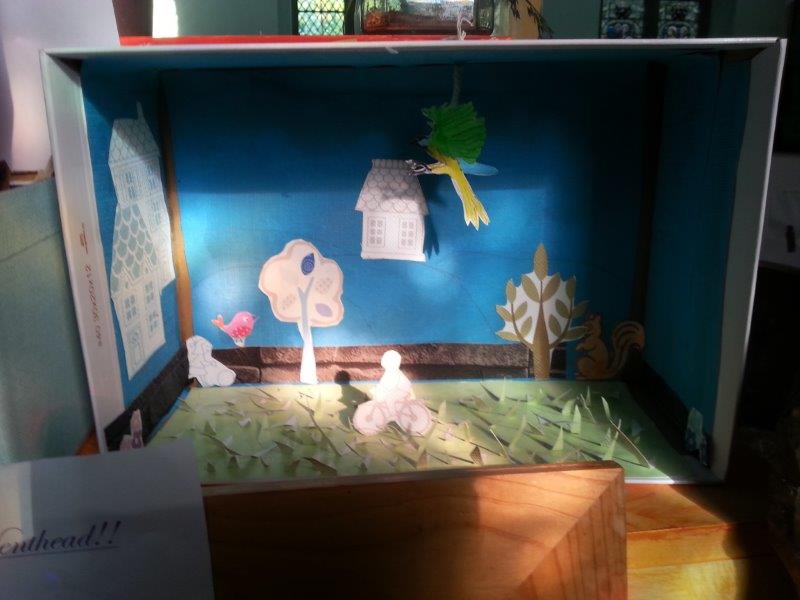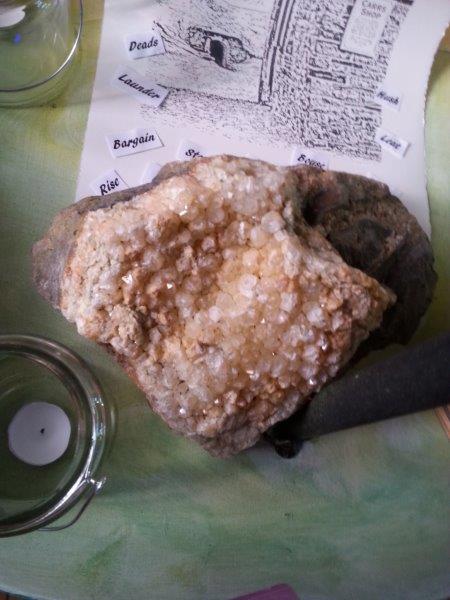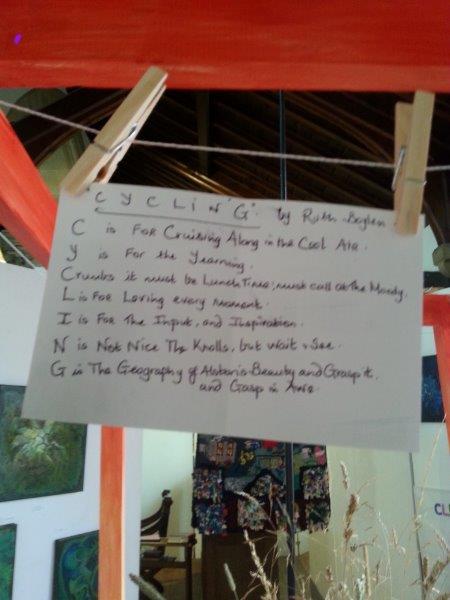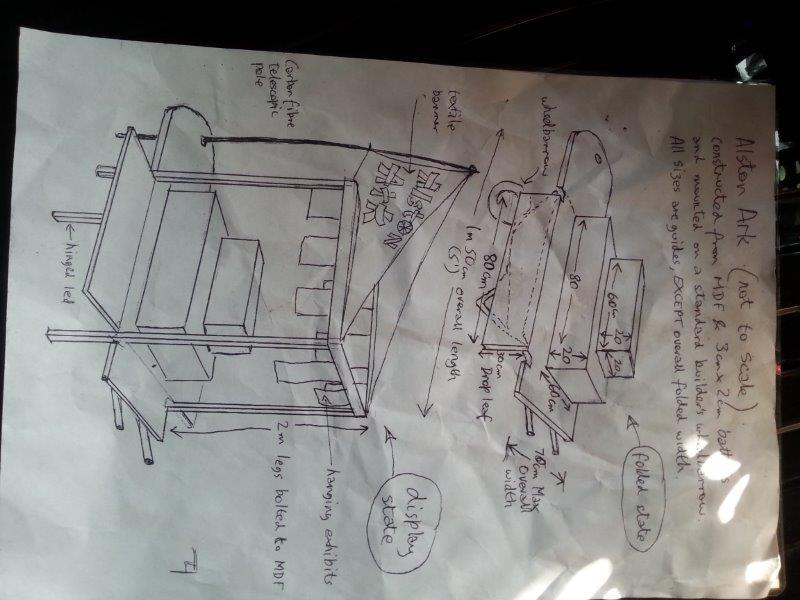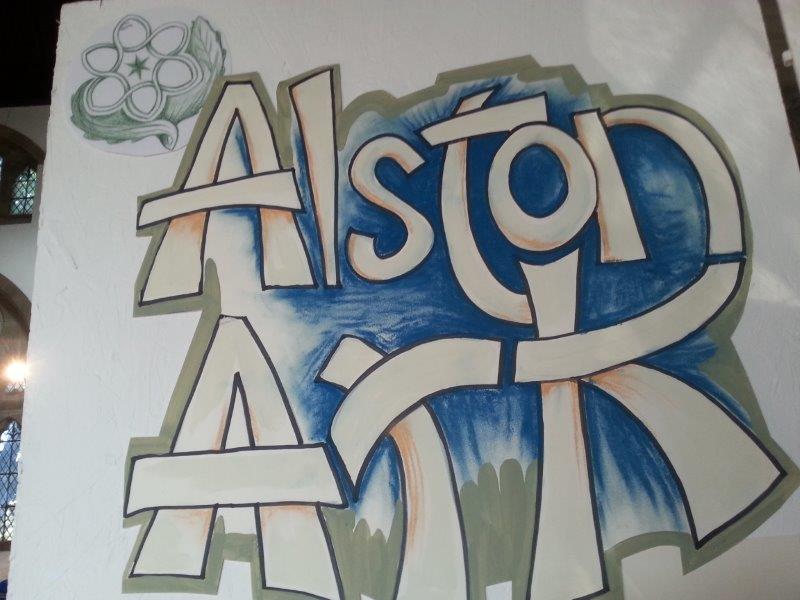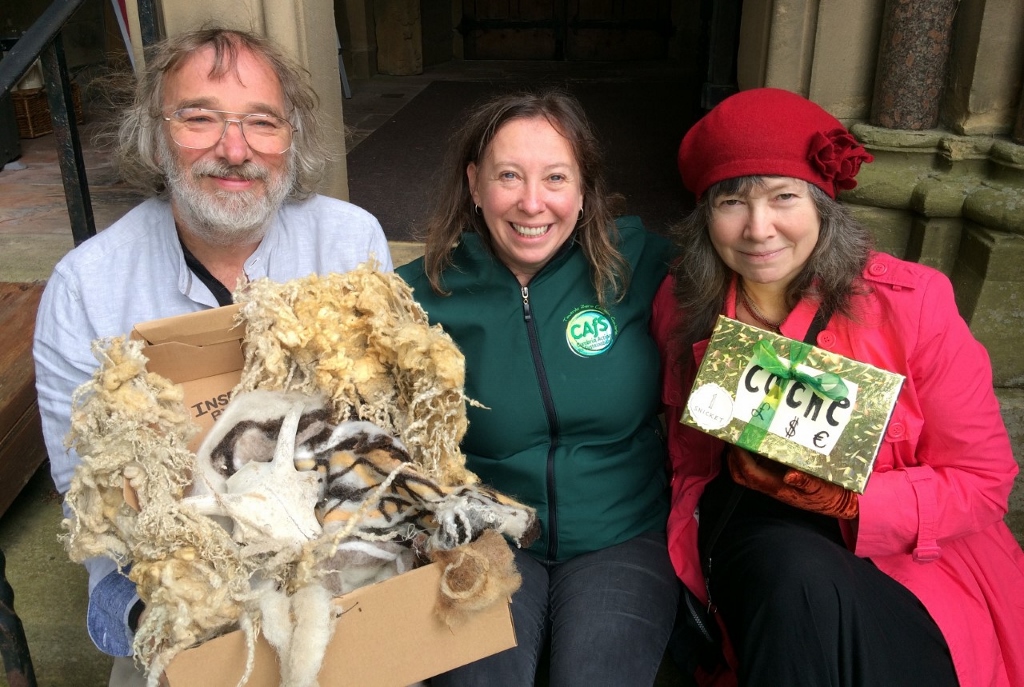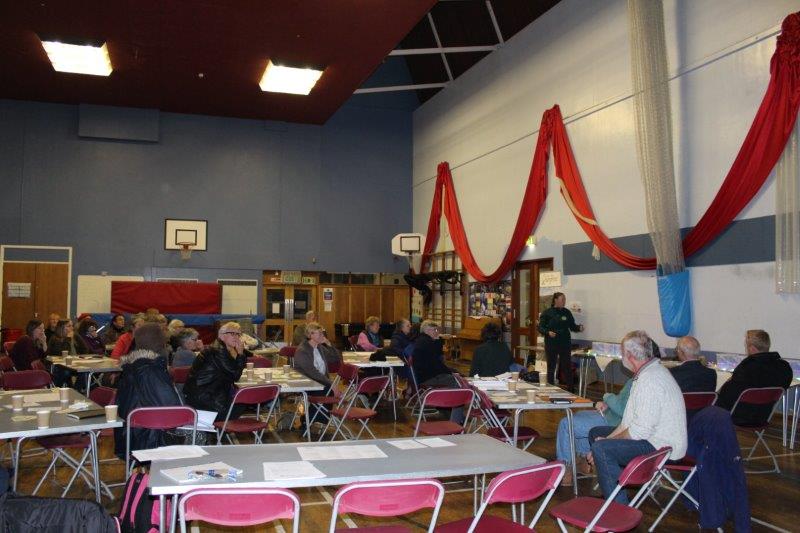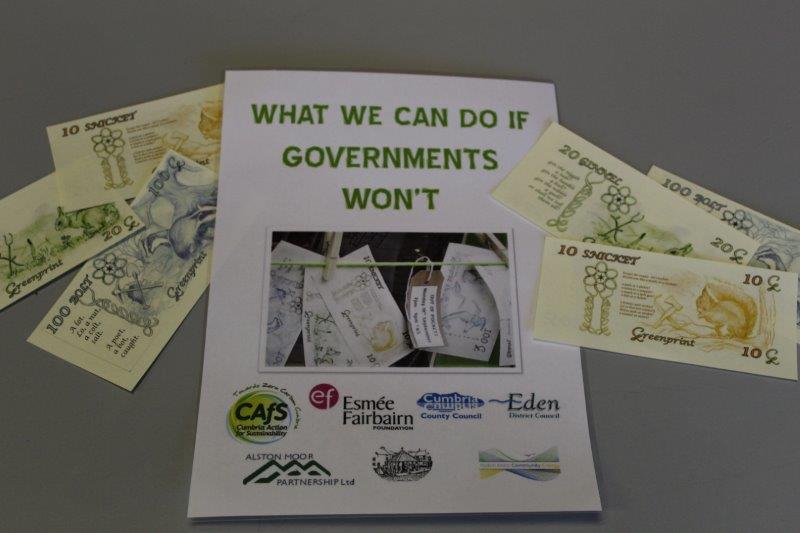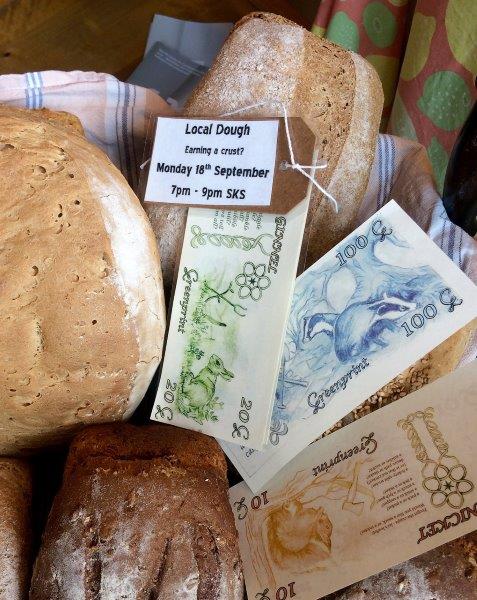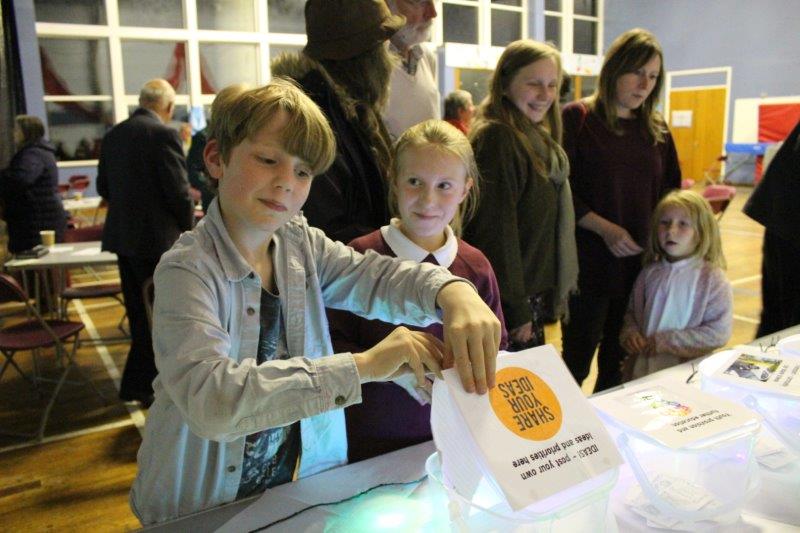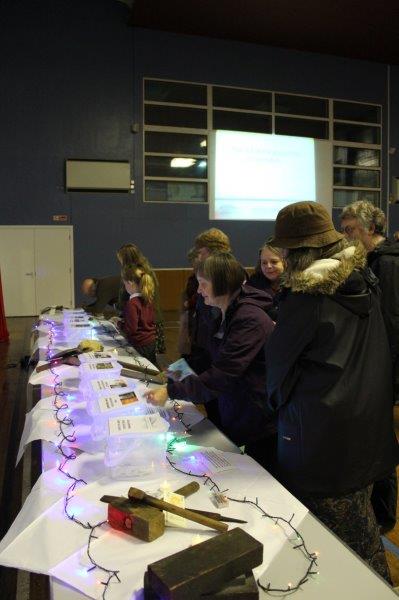The Alston Moor Greenprint was shaped and developed by the people who live and work in the area.
Innovative consultation events and activities identified how residents want their area to develop and inspired them to get involved to help make their vision a reality.
Here are a few of the creative ways the Greenprint brought people together to envision a greener future.
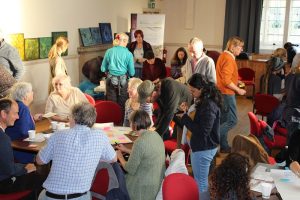
Greenprint Convergence – a first for Cumbria!
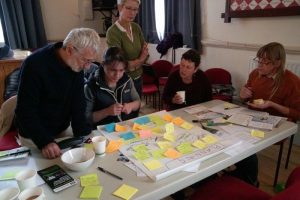 The first Greenprint Convergence was an inspirational day of visioning a zero-carbon future for Alston Moor, held on Saturday 8 September 2018.
The first Greenprint Convergence was an inspirational day of visioning a zero-carbon future for Alston Moor, held on Saturday 8 September 2018.
The discussions and activities at the event led to some confirmed actions, included a funded feasibility study and business plan focusing on local food growing on Alston Moor – both collective community growing and local food enterprise.
Paul Allen from the Centre for Alternative Technology took us all on a journey into “The Extraordinary Story of Human Beings, Energy and Happiness” – a whistlestop tour of the causes of climate change, the solutions and the positive benefits those solutions could bring.
Kit England from Alston Moor Community Energy gave an inspiring update on activities and aspirations and Alan Barr from the Penrith Green Party supported with the organisation of the day and facilitation. Local political party representatives from Labour, Green Party and Liberal Democrats took the time to speak and support the event and we welcomed community participants from Alston Moor, Durham, Cumbria and Tynedale.
We were treated to fantastic local produce from the Moody Baker and Alston Wholefoods.
Looking ahead to a Zero Carbon Alston Moor!
The Convergence built on the week-long Greenprint Festival in September 2017, featuring a range of events and workshops including:
- Eco architecture and community-led housing
- Go Organic Master Composter workshop, where participants learned about efficient, organic composting
- Love Food, Hate Waste workshop
- the first pilot Repair Café, which has gone on to surpass all expectations
The Alston ARK
This community art project, facilitated by a local visual artist and poet, invited people to contribute artworks, objects, and words that conveyed something of what they value about Alston Moor – its past, present and future. Physical artefacts were displayed in a dedicated space in the parish church for the duration of the week, creating an art installation called Alston Ark.
One of the creators explains:
“The project was based on what people chose to create and offer to the exhibition. It wasn’t something being done to them or for them. It’s a different way of engaging – a voice for people who don’t relate to scientific arguments or statistics or who don’t want to engage in political debate. Visual art, especially non-representational art, can shock people into new ways of thinking.”
Artefacts included paintings, photographs and banners, examples of traditional crafts and mini-installations, as well as poems, letters and individual objects. Key themes running through the artefacts were the uniqueness of the Alston Moor culture and the value of the natural landscape and local wildlife.
An estimated 300 visitors came to the installation during the week-long exhibition, and there have been requests for it to be hosted at other venues.
Bolts, Ginnels & Snickets
Bolts, Ginnels and Snickets are all dialect words meaning a short-cut or way through. As the Greenprint is all about paving the way through to a greener future, these words seemed to be very appropriate names for a series of beautifully created ‘bank notes’, which residents were given as a prioritisation exercise.
People were invited to use their ‘currency’ to vote for the themes and actions that they considered to be the key priorities for Alston Moor. The themes had been identified through the first round of consultation for the Community Plan.
In terms of top priorities, the leader board was:
- Youth provision and further education for all ages
- Energy-efficient social housing for families and older people
- Alston Moor Community Energy investment in renewable energy generation
- Establishing an apprenticeship linked to social care and warm homes
Here’s what some of the participants said:
“There has to be a realisation that there’s going to be less from local government in the future. If you want something you have to be prepared to pay for it.”
“We have to recognise that there is the potential for doing things ourselves. We’ve learned that from the community energy project.”

